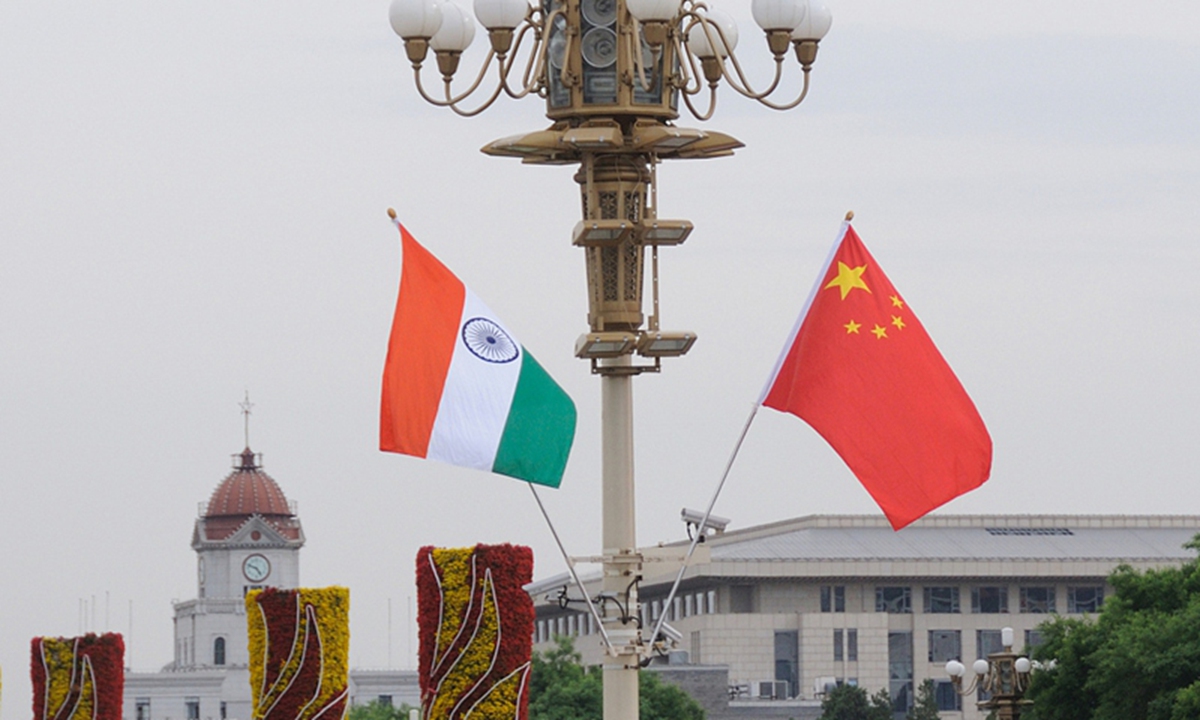India must not let border scuffle fray economic relations with China
By Li Hong Source:Global Times Published: 2020/6/21 18:17:59

Photo: VCG
The deadly physical scuffle between Indian and Chinese border troops on June 15 was an unfortunate clash and should not be used by politicians and conspiracy theorists, both inside and outside India, to arouse nationalism and hatred toward China - a giant neighbor that India relies on to grow its economy.
Only with peace and tranquility at their borders can the two heavyweight emerging Asian countries forge closer trade ties and economic links that will benefit both peoples. The two nations should do all in their power to prevent the latest border incident from worsening and seriously disrupting bilateral relations.
New Delhi should guard against falling prey to any instigation by a third country to escalate the brawl into a bitter diplomatic war, or engage in intermittent border provocations.
China's Foreign Ministry revealed it was the incursion by the Indian troops in the first place to China's side of Line of Actual Control (LAC) at the barren Galwan Valley that caused the brawl and the casualties on both sides. The ministry added that the transgressing Indian troops forcibly demolished Chinese troops' tents.
Beijing has asked the Indian government to act calmly and conduct a thorough probe into the intrusion, and at the same time hopes the two sides will strengthen communication so as to maintain peace and stability at the borders. The goodwill in keeping peace through dialogue ought to be reciprocated by New Delhi.
Despite the brawl, there was no exchange of live fire, in keeping with the two countries' border management protocol. The majority of the casualties were caused by concussion and hypothermia.
In the days since the incident, Chinese mass media has been weathered and sober in their commentaries, not to whip up public sentiment against India and try to play down the unfortunate crisis.
However, many Indian television anchors and newspaper opinion columnists have been seen trying to escalate the border scuffle, with the most belligerent demanding that India give China a "bloody nose". Nationalist fever is being fuelled. For instance, retired Indian army officer Ranjit Singh told Indians last week to throw Chinese goods out, asserting Indians "can break China's backbone economically".
We hope Indian people won't be fooled by the radical elements in their country. India needs China, economically and geopolitically.
As India's biggest trading partner and a crucial source of foreign investment, China provides a plethora of opportunities to India. Of the top 30 so-called unicorn startup enterprises in India, 18 have Chinese investments. And many daily necessities enjoyed by Indians, from household color TVs, microwave ovens and air conditioners to the most fashionable mobile phones and laptops, are produced by China. With both affordable prices and good quality, Chinese items are difficult to replace.
It seems that extreme nationalist forces in India are again stirring up the "Boycott Made-in-China" message to vent their anger. But they need to look at what they have at home.
Some claim that they could offload their 4G mobile networks to be replaced with equipment made in India, but in reality, until today there has not been a single Indian telecom maker that is able to manufacture 3G and 4G gears.
Additionally, India should never fire up geopolitical tensions in Asia, particularly with China and Pakistan - the two countries with which India draws the longest border lines.
New Delhi has 100 reasons to nourish good and mutually beneficial relations with China, as neither can move their territory away from the other.
At a time when the coronavirus pandemic in India has now entered a new and very dangerous phase, with ballooning infection numbers in the past week, Indian politicians ought to concentrate efforts on combating the contagion, rather than gambling on hostile political moves.
After all, reason and restraint are what New Delhi now needs most, as making friends is always better than making enemies.
The author is an editor with the Global Times. bizopinion@globaltimes.com.cn
Posted in: COLUMNISTS